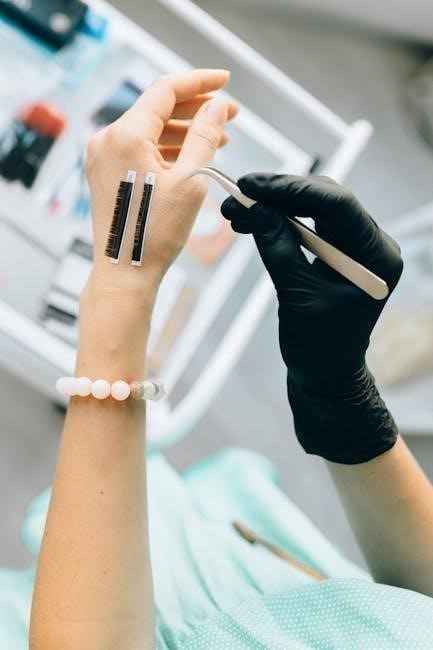Internalized homophobia refers to the involuntary absorption of societal prejudice, leading to self-hatred and shame among LGBTQ+ individuals. It stems from external homophobic messages internalized over time.
Addressing internalized homophobia is crucial for mental health and self-acceptance. This guide explores its roots, effects, and strategies for overcoming shame, fostering a journey toward self-love and empowerment.
What is Internalized Homophobia?
Internalized homophobia is a psychological phenomenon where LGBTQ+ individuals unconsciously adopt and internalize societal homophobic attitudes, leading to self-hatred, shame, and negative self-perception. It often develops in environments where heteronormativity is deeply ingrained, causing individuals to view their own sexual orientation as flawed or unacceptable. This internal conflict can stem from childhood experiences, cultural norms, or religious teachings that condemn same-sex attraction. As a result, individuals may struggle with self-acceptance, experience emotional distress, and even exhibit homophobic behaviors toward others as a coping mechanism. Recognizing internalized homophobia is the first step toward healing and reclaiming self-worth.
The Importance of Addressing Internalized Homophobia
Addressing internalized homophobia is essential for fostering mental health, self-acceptance, and emotional well-being. Left unaddressed, it can lead to chronic anxiety, depression, and self-destructive behaviors, perpetuating a cycle of shame. By confronting and challenging these deeply ingrained beliefs, individuals can reclaim their identity and build resilience. Self-reflection, therapy, and support systems play a crucial role in this process. Recognizing the harm caused by internalized homophobia is the first step toward healing and embracing one’s true self. It allows individuals to break free from societal conditioning and cultivate a more compassionate and authentic relationship with themselves and others.
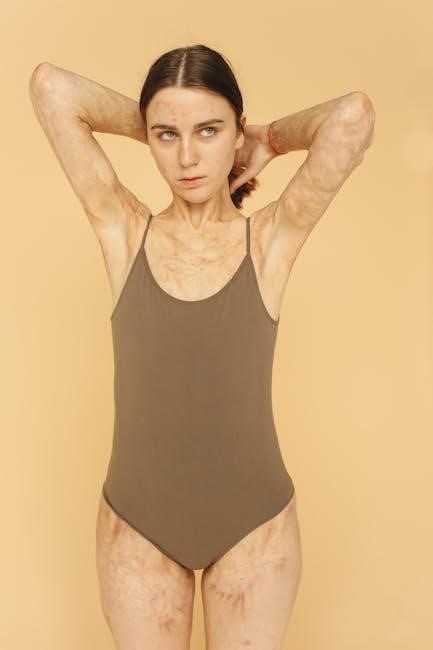
Understanding Internalized Homophobia
Internalized homophobia is the absorption of societal prejudice, leading to self-hatred and shame. It stems from external messages, often recognized through self-reflection, therapy, or trusted conversations.
Defining Internalized Homophobia
Internalized homophobia is the involuntary absorption of societal prejudice, leading to self-hatred and shame among LGBTQ+ individuals. It manifests as negative self-perceptions and behaviors, often rooted in external homophobic messages internalized over time.
This phenomenon arises from growing up in environments where homosexuality is stigmatized, causing individuals to internalize these beliefs. It can result in self-loathing, self-destructive behaviors, and mental health struggles, making it crucial to address for emotional well-being.
Recognizing these internalized patterns is the first step toward healing and self-acceptance, allowing individuals to challenge and reframe harmful beliefs.
The Causes of Internalized Homophobia
Internalized homophobia arises from societal prejudice and stigma surrounding homosexuality. Growing up in environments where same-sex attraction is condemned or shamed contributes significantly to its development.
Family, culture, and religion often play a role, as individuals internalize negative messages about their identity. Exposure to homophobic language, discrimination, or violence further reinforces these harmful beliefs.
Witnessing prejudice against LGBTQ+ individuals or experiencing rejection can lead to self-hatred and internalized shame. These factors create a toxic environment where self-acceptance becomes a significant challenge.
The Signs and Symptoms of Internalized Homophobia
Individuals with internalized homophobia often exhibit self-loathing, shame, or denial of their sexual orientation. They may avoid LGBTQ+ communities or express homophobic views to mask their true selves.
Low self-esteem, anxiety, and depression are common symptoms. Some may struggle with intimate relationships or feel disconnected from their desires due to internalized negativity.
Self-destructive behaviors, such as substance abuse, can also manifest as a coping mechanism. These signs highlight the profound emotional toll of internalized homophobia on mental health and well-being.
The Effects of Internalized Homophobia on Mental Health
Internalized homophobia can severely impact mental health, leading to chronic anxiety, depression, and low self-esteem. The internal conflict between societal expectations and personal identity often results in emotional distress.
Individuals may experience self-loathing, feelings of worthlessness, and difficulty forming healthy relationships. This internalized shame can also contribute to substance abuse as a coping mechanism for unresolved emotional pain.
The psychological toll of internalized homophobia can hinder personal growth and overall well-being, emphasizing the need for addressing these deeply rooted beliefs to achieve mental health and self-acceptance.

The Impact of Internalized Homophobia on Mental Health
Internalized homophobia deeply affects mental health, fostering anxiety, depression, and low self-esteem. It often leads to self-hatred and emotional turmoil, hindering personal growth and well-being.
Addressing these internalized beliefs is essential for healing and achieving mental health.
Internalized Homophobia and Self-Esteem
Internalized homophobia significantly impacts self-esteem, often leading to self-doubt and a negative self-image. Societal prejudice internalized over time fosters feelings of inadequacy and shame, making it difficult to embrace one’s identity.
This can manifest as self-criticism, fear of rejection, or avoidance of intimate relationships. Low self-esteem may also contribute to mental health challenges like anxiety and depression, further complicating the journey toward self-acceptance.
Addressing internalized homophobia requires acknowledging its effects on self-esteem and actively working to rebuild a positive sense of self through self-compassion, education, and supportive relationships.
How Internalized Homophobia Contributes to Anxiety
Internalized homophobia often fosters anxiety by creating a psychological burden of self-doubt and fear of rejection. The constant need to hide one’s true identity can lead to heightened stress and hypervigilance.
This internal conflict may manifest as social anxiety, fear of being “outed,” or even generalized anxiety. The pressure to conform to societal expectations can disrupt mental health, making it difficult to feel safe or accepted.
Addressing these feelings through self-reflection, therapy, or supportive communities is essential to alleviate anxiety and promote emotional well-being.
The Link Between Internalized Homophobia and Depression
Internalized homophobia can deeply contribute to depression by fostering chronic self-hatred, shame, and a negative self-image. When individuals internalize societal prejudice, they may struggle with feelings of worthlessness and inadequacy.
This emotional burden can lead to withdrawal from social connections and a lack of self-acceptance, further isolating individuals and intensifying depressive symptoms. The internal conflict between one’s true identity and societal expectations can create a cycle of sadness and hopelessness.
Addressing internalized homophobia through therapy, self-compassion, and supportive communities is essential to break this cycle and alleviate depressive feelings, promoting mental health and self-acceptance.
Substance Abuse as a Coping Mechanism for Internalized Homophobia
Substance abuse often serves as a maladaptive coping mechanism for individuals grappling with internalized homophobia. Many turn to drugs or alcohol to numb the emotional pain of self-hatred and shame.
This behavior provides temporary relief from feelings of inadequacy and societal rejection. However, it exacerbates mental health struggles, perpetuating a cycle of self-destructive habits and further entrenching internalized homophobia.

Addressing substance abuse requires confronting its root cause—unresolved internalized homophobia. Therapy, support groups, and self-compassion are essential to break this cycle and foster healing, helping individuals move toward self-acceptance and mental well-being.
Overcoming Internalized Homophobia
Overcoming internalized homophobia involves a journey of self-acceptance, challenging harmful beliefs, and seeking support. Therapy, self-compassion, and connecting with affirming communities are key to healing and growth.
The Role of Self-Acceptance in Overcoming Internalized Homophobia
Self-acceptance is a cornerstone in overcoming internalized homophobia, as it involves embracing one’s true identity and rejecting harmful societal norms. It requires acknowledging and challenging negative beliefs ingrained from external sources. Through self-reflection, individuals can identify and reframe these thoughts, fostering a more compassionate relationship with themselves. Journaling, therapy, and open conversations with trusted allies can aid this process. Self-acceptance empowers individuals to break free from shame, fostering resilience and confidence. It is a continuous journey that allows LGBTQ+ individuals to reclaim their authenticity and live authentically, free from the weight of internalized prejudice.
Building Self-Esteem and Confidence
Building self-esteem and confidence is vital for overcoming internalized homophobia. It involves recognizing and challenging negative self-perceptions rooted in societal prejudice. Positive affirmations, celebrating personal strengths, and setting achievable goals can help rebuild self-worth. Engaging in activities that foster a sense of accomplishment and pride encourages confidence. Surrounding oneself with supportive, affirming individuals and environments further nurtures self-esteem. Gradual, consistent efforts to reframe self-image and embrace authenticity are essential. By fostering self-compassion and resilience, individuals can overcome the damaging effects of internalized homophobia and develop a healthier, more confident sense of self.
The Importance of Self-Compassion
Self-compassion is a powerful tool in overcoming internalized homophobia. It involves treating oneself with kindness, understanding, and patience, especially when confronting painful emotions or experiences. By practicing self-compassion, individuals can counteract the harmful effects of self-hatred and shame. It fosters a nurturing relationship with oneself, allowing for healing and growth. Self-compassion encourages acknowledgment of one’s humanity and the validity of their feelings, rather than judgment. Regularly engaging in self-care practices, such as mindfulness or journaling, can help cultivate self-compassion. This mindset is essential for rebuilding self-worth and embracing authenticity, ultimately paving the way for a more fulfilling and accepting life.
Seeking Support from Therapy and Counseling
Therapy and counseling provide a safe space to explore and address internalized homophobia. Trained professionals can help individuals identify harmful beliefs and develop healthier thought patterns. Through techniques like cognitive-behavioral therapy, individuals can challenge and reframe negative self-perceptions. A therapist can also offer guidance on building self-acceptance and coping with societal pressures. Sharing experiences with a supportive counselor fosters understanding and validation, reducing feelings of isolation. For example, clinicians working with marginalized communities have seen the positive impact of therapy in helping individuals heal from internalized homophobia. Seeking professional support is a crucial step toward overcoming shame and achieving emotional well-being.
Joining Support Groups for LGBTQ+ Individuals
Joining support groups for LGBTQ+ individuals can be a transformative step in overcoming internalized homophobia. These groups provide a safe, non-judgmental space to share experiences and connect with others who face similar challenges. Sharing stories and hearing others’ journeys fosters a sense of community and reduces feelings of isolation. Support groups also offer practical tools and strategies for addressing internalized homophobia, such as challenging negative beliefs and building self-acceptance. For example, group therapy sessions led by clinicians have proven effective in helping individuals heal and grow. Participating in these groups can empower individuals to embrace their identity and work collectively toward healing and self-love.
The Role of Allies in the Journey to Self-Acceptance
Allies play a vital role in supporting individuals dealing with internalized homophobia by creating a safe and affirming environment. Their active listening and validation help reduce feelings of isolation. Allies can amplify LGBTQ+ voices, challenge homophobic behaviors, and advocate for inclusivity. For instance, clinicians working with marginalized communities have effectively led groups promoting healthy relationships and self-acceptance. Allies should educate themselves about LGBTQ+ issues and avoid appropriating the individual’s journey. By standing in solidarity without centering themselves, allies empower individuals to embrace their identity and heal from internalized shame. Their unwavering support fosters resilience and self-acceptance, making the journey less solitary and more hopeful.
Challenging Negative Beliefs and Thoughts
Challenging negative beliefs and thoughts is a critical step in overcoming internalized homophobia. This involves identifying and questioning harmful, ingrained ideas about oneself and one’s identity. Techniques like cognitive restructuring can help reframe negative thoughts into positive, affirming ones. Mindfulness practices, such as meditation, can increase self-awareness, allowing individuals to observe harmful thought patterns without judgment. Self-compassion is essential during this process, as it fosters kindness and understanding toward oneself. Educating oneself about LGBTQ+ history and culture can also counteract internalized stereotypes. Allies can support this journey by promoting acceptance and challenging homophobic attitudes in their communities, creating a safer environment for growth and self-acceptance.
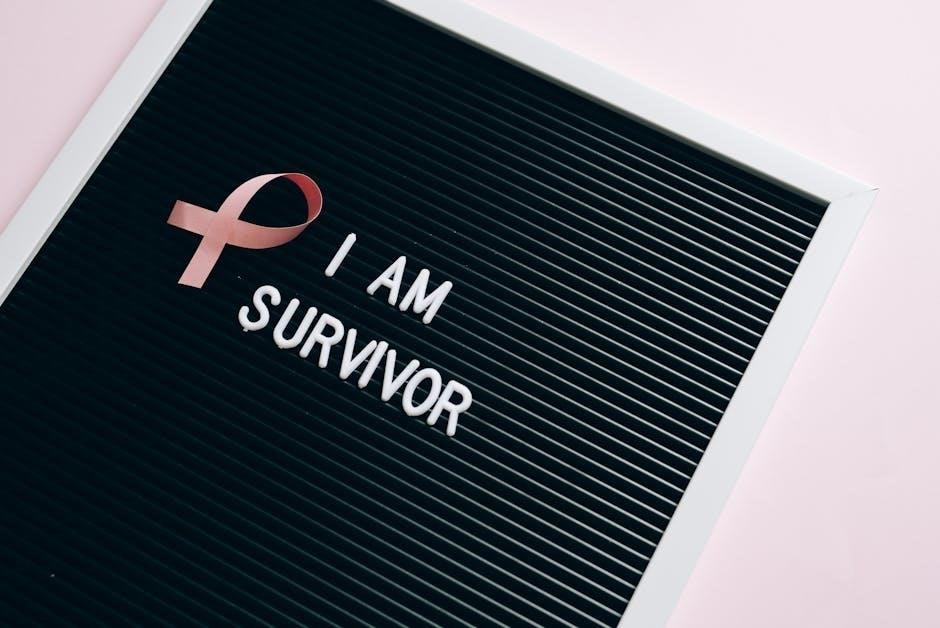
Strategies for Challenging Negative Beliefs
Strategies include self-reflection, education, and support systems. Identify negative beliefs, reframe harmful thoughts, and seek inclusive environments to counteract internalized homophobia and foster self-acceptance;
Identifying and Reframing Negative Thought Patterns
Identifying negative thought patterns involves recognizing self-critical beliefs rooted in internalized homophobia. Journaling or therapy can help uncover these thoughts, allowing individuals to challenge their validity. Reframing involves replacing harmful beliefs with positive affirmations, fostering self-acceptance. Education about LGBTQ+ history and culture can also counteract internalized prejudice. Surrounding oneself with supportive environments and role models further aids in transforming negative thought patterns. This process requires patience, self-compassion, and consistent effort to replace shame with self-love and empowerment.
Practicing Mindfulness and Self-Awareness
Practicing mindfulness and self-awareness is a powerful tool for addressing internalized homophobia. Mindfulness involves being present with your thoughts and emotions without judgment, allowing you to observe harmful patterns without becoming overwhelmed. Self-awareness helps identify when internalized homophobia arises, enabling you to challenge and reframe these beliefs. Techniques like meditation, deep breathing, or journaling can foster this awareness. By cultivating self-compassion, individuals can replace self-criticism with kindness, reducing the grip of internalized homophobia. This practice promotes emotional resilience and self-acceptance, empowering individuals to embrace their true selves and move beyond shame.
Educating Yourself About LGBTQ+ History and Culture
Educating yourself about LGBTQ+ history and culture is a vital step in overcoming internalized homophobia. Learning about the resilience, contributions, and achievements of LGBTQ+ individuals helps counteract harmful stereotypes and fosters pride. Understanding the historical struggles and triumphs of the community can empower you to reclaim your identity and challenge internalized shame. Exploring LGBTQ+ art, literature, and cultural movements can also deepen your connection to the community. This knowledge not only promotes self-acceptance but also equips you with tools to combat societal prejudice and embrace your authentic self with confidence and pride.
Creating a Supportive Environment
Creating a supportive environment involves self-reflection to recognize internalized homophobia and surrounding yourself with positive influences. This fosters acceptance and helps counteract harmful beliefs and stereotypes.
Surrounding Yourself with Positive Influences
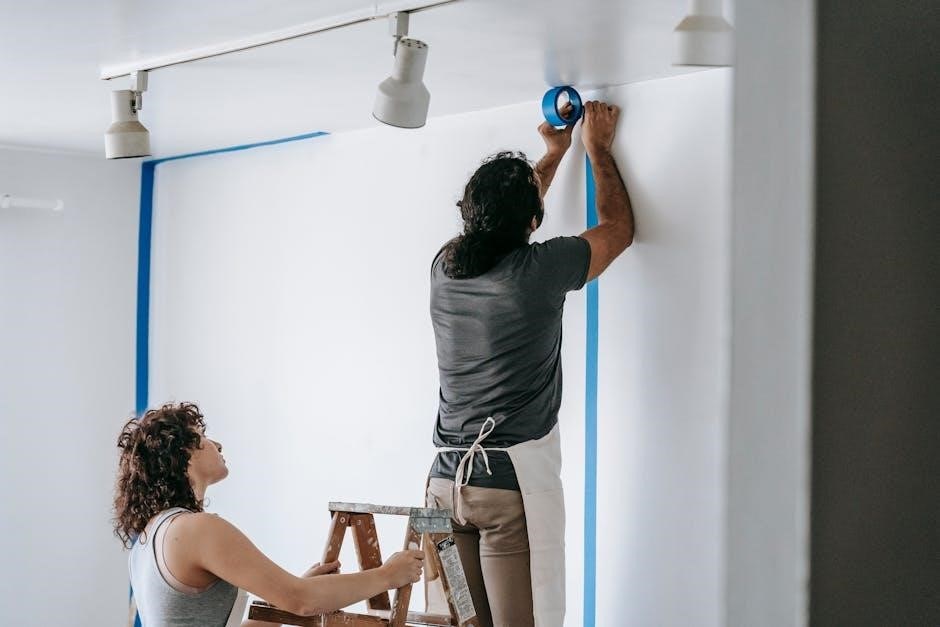
Surrounding yourself with positive influences is vital in overcoming internalized homophobia. Seek out supportive communities, inclusive spaces, and individuals who affirm your identity and promote self-acceptance.
Positive role models, whether through friends, mentors, or LGBTQ+ groups, can help counteract harmful beliefs. Engaging in environments that celebrate diversity fosters resilience and reduces the impact of internalized shame.
By immersing yourself in uplifting relationships and experiences, you can gradually replace self-hatred with self-love, creating a foundation for lasting emotional and mental well-being.
Setting Boundaries with Unsupportive Individuals
Setting boundaries with unsupportive individuals is essential for protecting your mental health and reducing the impact of internalized homophobia. Unsupportive people can trigger feelings of shame and reinforce harmful beliefs.
Limiting contact with those who dismiss or invalidate your identity helps create space for self-acceptance. Surround yourself with affirming individuals who respect and value you for who you are.
Clearly communicate your needs and distance yourself when necessary. Boundaries are not about aggression but self-care, ensuring you prioritize environments that foster growth and self-love.
The Role of Spirituality and Faith
Spirituality and faith can play a significant role in addressing internalized homophobia, offering a sense of purpose and belonging. For many, faith communities provide comfort and strength.
However, when religious teachings perpetuate homophobia, they can deepen internalized shame. Finding inclusive spiritual spaces is crucial for healing and reconciling faith with self-acceptance.
Navigating Religious or Cultural Beliefs That Contribute to Internalized Homophobia
Religious or cultural beliefs often perpetuate internalized homophobia by promoting heteronormative values and condemning same-sex attraction. These teachings can lead to deep-seated shame and self-hatred, especially when individuals struggle to reconcile their identity with their faith or heritage.
Addressing these beliefs requires a critical examination of their origins and interpretations. Engaging with inclusive religious communities or reinterpretations of teachings can help individuals find harmony between their faith and identity. Self-reflection, education, and seeking supportive environments are essential steps in navigating and overcoming the harmful effects of such beliefs.
Finding Inclusive and Affirming Spiritual Communities

Finding inclusive and affirming spiritual communities is a powerful step in healing from internalized homophobia. These communities provide safe spaces where individuals can embrace their identity without judgment, fostering a sense of belonging and spiritual growth.
Researching denominations or groups known for LGBTQ+ inclusivity, such as certain progressive churches or queer-affirming organizations, can help individuals find supportive environments. Engaging with these communities allows for the reconstruction of faith in a way that aligns with self-acceptance and love, counteracting harmful beliefs and promoting emotional and spiritual well-being.
Maintaining Progress and Growth
Maintaining progress involves consistent self-care, support systems, and boundary-setting to avoid triggers. Regular reflection and seeking help when needed ensure sustained growth and emotional resilience over time.
The Importance of Self-Care in Overcoming Internalized Homophobia
Self-care is essential for healing from internalized homophobia, as it fosters self-compassion and resilience. Engaging in activities that bring joy and comfort, such as exercise, meditation, or creative pursuits, helps counteract negative self-perceptions. By prioritizing emotional and physical well-being, individuals can rebuild their sense of worth and reduce stress. Regular self-reflection, journaling, or talking to trusted friends can also deepen self-awareness and promote personal growth. Consistently practicing self-care creates a foundation for sustained progress, enabling individuals to navigate challenges with greater confidence and emotional stability. It is a powerful tool in the journey toward self-acceptance and overcoming internalized shame.
Avoiding Triggers and Toxic Environments
Avoiding triggers and toxic environments is crucial for managing internalized homophobia. Identifying situations or people that provoke negative emotions or reinforce harmful beliefs can help reduce stress and anxiety. Setting boundaries with unsupportive individuals or limiting exposure to homophobic rhetoric is essential. Surrounding oneself with positive, affirming influences fosters a safer emotional space. Creating a protective environment allows individuals to focus on healing and self-acceptance without constant reminders of societal prejudice. By minimizing exposure to harmful stimuli, individuals can reduce internalized shame and cultivate resilience, empowering them to navigate their journey toward self-acceptance with greater ease and emotional stability.
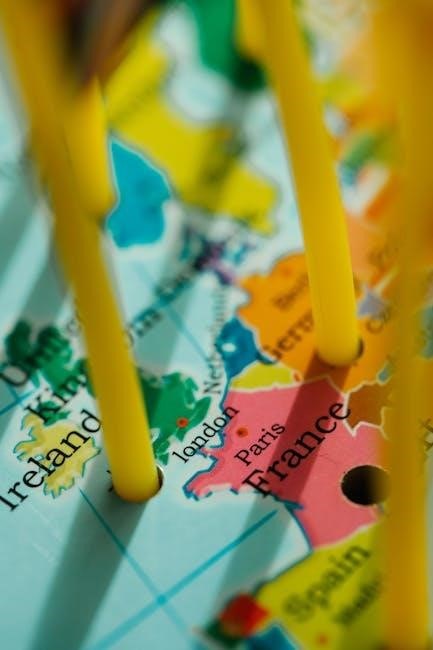
The Role of Allies in the Process

Allies play a vital role in supporting individuals with internalized homophobia by fostering acceptance and understanding. Their advocacy and inclusive actions help create safer, more empowering environments.
How Allies Can Support Individuals Dealing with Internalized Homophobia
Allies can support individuals by actively listening, validating their feelings, and avoiding judgment. Education about LGBTQ+ issues fosters empathy and understanding. Using inclusive language and amplifying LGBTQ+ voices helps counteract harmful narratives. Allies should encourage open conversations and create safe spaces for self-expression. They can also advocate for inclusive policies and challenge homophobic behaviors in their communities. By being patient and consistent, allies provide the necessary encouragement for individuals to embrace their identities and work through internalized homophobia. Their unwavering support can significantly aid in the journey toward self-acceptance and healing.
Overcoming internalized homophobia is a journey of self-discovery and healing. Embracing your true self, supported by allies and resources, fosters growth, self-acceptance, and empowerment.

Summarizing the Journey to Overcoming Internalized Homophobia
Overcoming internalized homophobia involves a profound journey of self-reflection, healing, and acceptance. It requires acknowledging the deeply ingrained societal prejudices and actively challenging them. Through therapy, journaling, or conversations with trusted individuals, one can identify and reframe harmful thought patterns. Building a supportive network of allies and like-minded communities plays a crucial role in fostering resilience. The process also involves embracing LGBTQ+ history and culture, which helps counteract internalized shame. While the journey is often fraught with emotional struggles, it ultimately leads to self-acceptance, empowerment, and a healthier sense of identity. Persistence and compassion are key to navigating this transformative path.
Encouragement for Continued Growth and Self-Acceptance
Embracing self-acceptance is a courageous and ongoing journey, requiring patience and compassion. Celebrate small victories, as each step toward healing is a testament to your strength. Surround yourself with supportive communities and allies who affirm your worth. Remember, growth is not linear—setbacks are opportunities to learn and grow. By practicing self-compassion and challenging harmful beliefs, you pave the way for a more authentic, fulfilling life. Your journey is unique, and every effort to embrace your true self is a powerful act of resilience. Keep moving forward, knowing that self-love and acceptance are within reach.

